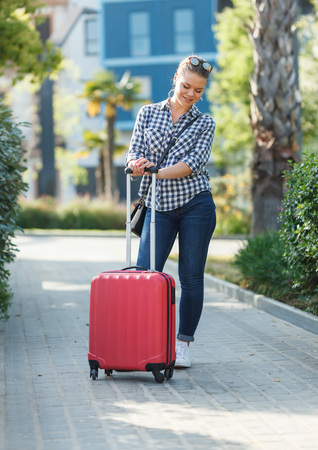Introduction: The British Traveller’s Worst Luggage Fears
There’s nothing quite like that sinking feeling at the baggage carousel when your suitcase stubbornly refuses to appear. For British families heading abroad—whether it’s a summer holiday in Spain or a festive trip to Lapland—lost luggage can quickly turn excitement into stress. Many of us have been there: one moment you’re planning your first swim at the hotel pool, the next you’re desperately scanning airport staff for help while your children grow restless. It’s not just about missing clothes or toiletries; it’s the emotional turmoil and disruption to carefully laid plans. I remember our family trip to Italy, where my daughter’s suitcase ended up in Frankfurt. She spent two days in borrowed outfits, and bedtime was a tearful affair without her favourite teddy bear. These stories are all too common among UK travellers, highlighting why understanding your rights and coverage under British travel insurance policies is so crucial. Knowing what support is available before disaster strikes can offer real peace of mind when you’re far from home.
British Travel Insurance Basics: What’s Typically Covered?
When it comes to British travel insurance, understanding what is and isn’t covered for lost or delayed luggage can save you both time and stress. Most UK travel insurance policies offer a degree of protection, but the details can vary significantly between providers. Here’s an overview of the typical inclusions and exclusions you’ll encounter in the UK market.
What’s Usually Included?
Standard British travel insurance usually covers:
| Coverage Area | Typical Inclusions |
|---|---|
| Lost Luggage | Reimbursement up to a set limit for items permanently lost, stolen, or destroyed during your journey. |
| Delayed Luggage | Payment for essential replacement items (like toiletries and clothing) if your baggage is delayed beyond a specified period, often 12-24 hours. |
| Travel Documents | Costs associated with replacing lost passports or travel documents. |
Industry Norms and Limits
The maximum claimable amount varies but is typically between £1,000 and £2,500 for lost luggage. For delayed luggage, daily allowances are common—usually ranging from £50 to £150 per day, up to a fixed cap. It’s important to check if your policy treats certain valuables (like electronics or jewellery) differently, as sub-limits may apply.
Common Exclusions You Should Know About
No two policies are identical, but many have similar exclusions:
- Unattended Luggage: Claims may be rejected if your bags were left unattended in a public place.
- Lack of Receipts: Many insurers require original receipts for claimed items, which can be tricky for older possessions.
- Pre-existing Damage: Items already damaged prior to travel are not covered.
- Certain Items: High-value goods like designer handbags or laptops may only be partially covered unless you purchase additional protection.
- Baggage Delay Thresholds: Reimbursement is usually only provided after a minimum delay period (e.g., 12 hours).
This basic knowledge is essential when comparing policies before booking your next family holiday or business trip. By knowing what you’re entitled to—and what might be excluded—you’ll be better prepared should your suitcase take an unscheduled detour on your travels.

3. Step-by-Step: What To Do Immediately When Your Luggage Goes Missing
If you’re standing by the carousel at Heathrow or Manchester Airport, watching everyone else collect their suitcases while yours is nowhere to be seen, don’t panic—here’s a practical step-by-step guide based on real traveller experiences and the British standard procedure for lost luggage.
Stay Calm and Head to the Lost Luggage Desk
First things first, resist the urge to get flustered. Every major UK airport has a dedicated lost luggage (baggage services) desk near the baggage claim area. As soon as you realise your bag hasn’t arrived, go straight there—don’t leave the baggage hall until you’ve reported the loss.
Provide Your Details and Get a Property Irregularity Report (PIR)
You’ll need your passport, boarding pass, and baggage tag (the sticker usually attached to your boarding card). The airline staff will ask for these details to file a Property Irregularity Report (PIR), which is essential for tracking your bag and making any insurance claims later. Always keep a copy of this report—it’s your official proof that your bag is missing.
Ask About Immediate Essentials
Many British airlines, including British Airways and easyJet, offer basic compensation or overnight kits if your luggage is delayed, especially if you’re far from home. Politely ask what assistance is available—travellers often find they can claim for reasonable purchases like toiletries or a change of clothes, provided they keep all receipts.
Contact Your Travel Insurance Provider Promptly
Once you’ve filed the PIR at the airport, ring your travel insurer as soon as possible. UK policies typically require prompt notification to process claims efficiently. Be ready with your policy number and PIR reference, and ask what documents or evidence you’ll need for reimbursement.
Tip: Document Everything
Experienced travellers recommend taking photos of your baggage tag, PIR form, and any items you buy due to the loss. This helps speed up both airline and insurance processes—and supports your claim should anything be disputed later.
Follow Up Regularly
Don’t assume “no news is good news.” Use the reference number on your PIR to check online or call the airline’s lost baggage helpline daily. Persistence often pays off; several British families have shared stories of bags being located thanks to regular follow-ups rather than waiting passively.
By following this British standard procedure—and arming yourself with practical tips from seasoned UK travellers—you’ll give yourself the best chance of recovering your belongings quickly, minimising disruption to your holiday or business trip.
4. Know Your Rights: How Strong Are UK Passenger Protections?
If you’ve ever faced the sinking feeling of a missing suitcase at Heathrow or Manchester, you might wonder what you’re truly entitled to as a passenger. The good news is that UK law, EU regulations (still relevant for many flights), and airline obligations combine to offer a safety net for travellers. Here’s a straightforward guide, peppered with real-life scenarios, so you know exactly where you stand.
Your Legal Entitlements Under UK Law
Under the Montreal Convention, which the UK upholds, airlines are liable for lost, delayed, or damaged luggage during international journeys. This means if your bags vanish en route from London to New York, you can claim compensation—currently capped at around £1,200 per passenger. Remember, it’s your responsibility to report the loss immediately at the airport and keep all documentation.
EU Regulations and Post-Brexit Realities
Even after Brexit, many consumer protections stemming from EU Regulation 261/2004 still apply to flights departing from the UK or operated by a UK/EU airline arriving in the UK. While this regulation primarily covers flight delays and cancellations, it also reinforces your right to assistance when things go wrong—including with baggage.
Practical Example:
Imagine flying from London Gatwick to Rome on a British carrier. Your bag doesn’t show up. The airline must provide essentials like toiletries and basic clothing until your bag arrives—and refund these reasonable expenses later. If your bag is declared officially lost (usually after 21 days), you can claim compensation based on receipts or an estimated value.
Airline Obligations: What Must They Do?
All major airlines operating in Britain have clear protocols:
- Immediate Reporting: Lodge a Property Irregularity Report (PIR) before leaving the airport.
- Interim Support: Airlines should reimburse essential purchases while you wait for your luggage.
- Formal Claim: If bags are lost after 21 days, file a detailed compensation claim within seven days of confirmation.
Baggage Rights At-a-Glance
| Scenario | Your Right | Required Action | Payout Limit (Approx.) |
|---|---|---|---|
| Baggage delayed | Reimbursement for essentials | PIR at airport + Receipts | No fixed limit; “reasonable costs” |
| Baggage lost (after 21 days) | Compensation for contents’ value | PIR + Detailed claim within 7 days | ~£1,200 per passenger (Montreal Convention) |
| Baggage damaged | Repair/replacement cost covered | PIR + Damage evidence/photos | Up to ~£1,200 per passenger |
A Family Experience From Cornwall:
The Williams family returned from holiday in Spain only to find their pram missing at Bristol Airport. By reporting it straight away and keeping all receipts for nappies and formula bought locally, they received full reimbursement within a month—no drama required!
The bottom line? Don’t be shy about knowing and exercising your rights. With UK laws, EU rules (where relevant), and airline policies working together, you’re not powerless when your luggage goes astray.
5. Making a Successful Claim: Navigating Common Pitfalls
Documenting Your Loss: The Essential First Step
If your luggage goes missing on holiday, the way you document your loss is absolutely crucial for a successful claim with your UK travel insurer. Always obtain a Property Irregularity Report (PIR) from the airline before leaving the airport. This report is your proof that the bag was lost while in their care and will be requested by most British insurers. Keep any baggage tags, flight tickets, and boarding passes as supporting evidence.
Submitting Your Claim: Practical Do’s and Don’ts for Families
Do:
- Notify promptly: Contact your insurer as soon as possible—many policies require notification within 24-48 hours of discovering the loss.
- List contents accurately: Write a detailed inventory of everything in your lost suitcase. Include receipts or bank statements for valuable items if available.
- Keep communication records: Save all emails or letters exchanged with the airline and insurer, as well as notes from any phone conversations (including names and dates).
Don’t:
- Avoid exaggeration: Overstating the value or quantity of lost items can result in rejected claims or accusations of fraud.
- Don’t discard evidence: Hold onto all paperwork until your claim is fully settled, even after receiving compensation.
Mistakes to Avoid: Lessons from Real-Life Case Studies
British families have shared stories where small missteps led to denied claims. For example, one Manchester family failed to submit receipts for their children’s electronics, resulting in those items being excluded from the payout. Another case saw a London couple miss out because they reported their loss to airport staff but never obtained a PIR. In both cases, being thorough with documentation would have made all the difference.
Family Tip:
If travelling as a group, keep one master file for everyone’s documents and purchase receipts—this makes submitting a comprehensive claim much easier should disaster strike.
The key takeaway? Treat every step seriously and methodically. By understanding what your British travel insurance requires, documenting carefully, and avoiding common pitfalls, you’ll give your family the best chance of recovering losses—and turning a luggage nightmare into a learning experience.
6. Beyond the Basics: Tips for Protecting Your Luggage
Smart Packing Strategies
No one wants their holiday ruined by lost luggage, so a bit of forward planning goes a long way. Brits travelling as a family should consider splitting clothes and essentials between suitcases – that way, if one bag goes missing, no one is left completely stranded. Always pop a change of clothes and key toiletries in your hand luggage. For little ones, keep favourite toys or comforters close to hand to avoid unnecessary tears.
Embracing Technology
Modern technology can be a real lifesaver when it comes to keeping tabs on your bags. Many seasoned UK travellers now use Bluetooth trackers such as Apple AirTags or Tile devices – simply tuck one inside each suitcase and you’ll be able to track their location with your phone. Most major airports across Britain offer free Wi-Fi, making it easy to check on your bags’ whereabouts if things go awry. Don’t forget to snap a quick photo of your cases before you check them in; having a clear image ready can help staff identify your luggage faster if it disappears.
Extra Cover for Family Peace of Mind
If you’re heading off on a big family trip, it’s worth double-checking that your travel insurance provides adequate baggage cover for everyone. Some British policies offer optional add-ons for higher value items or extra protection for children’s belongings like prams or car seats. Look out for “family bundle” options, which can often save money compared to individual cover, and always review the single item limit – especially if you’re packing expensive gadgets or sports gear.
Practical Prevention Tips
- Label every bag clearly with your contact details (avoid including your home address for security reasons).
- Use robust luggage locks approved by the TSA for any flights passing through the US.
- Check in early at busy UK airports such as Heathrow or Manchester to reduce handling mistakes.
- If travelling within Europe post-Brexit, check your policy’s geographic coverage and any new requirements.
A Little Preparation Goes a Long Way
No system is foolproof, but combining common sense with a dash of tech and solid insurance means you’re far less likely to face those dreaded “lost luggage nightmares”. By following these practical tips, British families can travel with confidence and focus on making memories together rather than worrying about missing suitcases.


